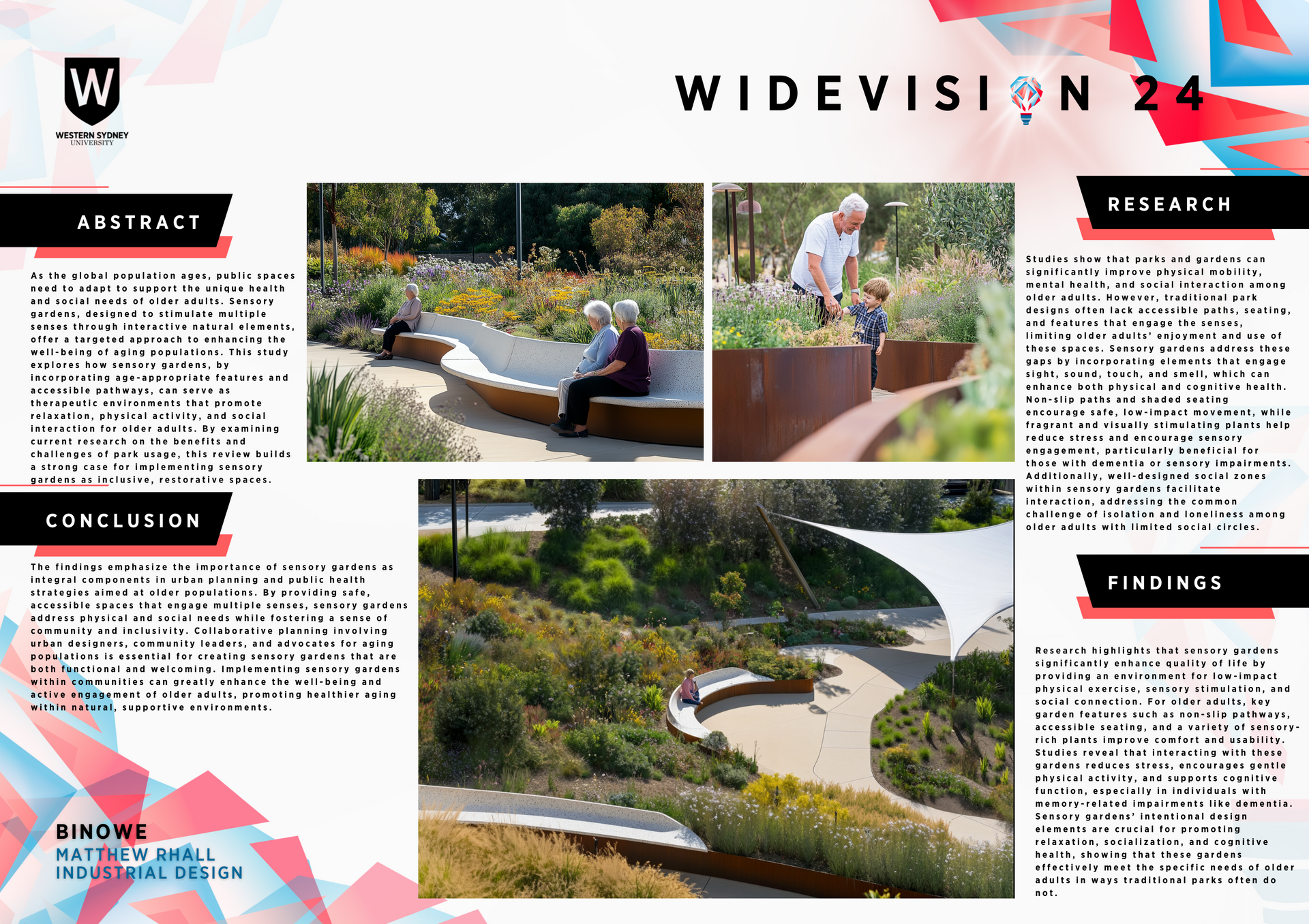
Matthew Rhall
Binowe
PROJECT
The sensory garden project is designed to create an inclusive, therapeutic space that engages the senses through a variety of plants, textures, sounds, and colors. Its primary aims are:
- Promote Well-Being: The garden seeks to enhance mental and physical well-being by providing a serene environment where individuals can relax, meditate, or engage with nature. The sensory experiences are intended to stimulate cognitive function and reduce stress, anxiety, and depression.
- **Encourage Social Interaction**: By creating a space where people can gather, the garden fosters social connections among users, reducing feelings of isolation and loneliness, particularly for older adults.
- Facilitate Accessibility: The design considers the needs of older adults, incorporating features like comfortable seating, non-slippery pathways, and raised planting beds that make it easier for individuals with mobility challenges to engage with the garden.
- Educate and Inspire: The sensory garden serves as a platform for educational programs about native plants, sustainable gardening practices, and the importance of biodiversity, encouraging visitors to appreciate and care for their environment.
Beneficiaries:
- Older Adults: The garden specifically targets older adults, providing them with a safe and inviting space to connect with nature, which has been shown to have therapeutic benefits. The design elements, such as sturdy seating, high backrests, and armrests, cater to their physical needs, making it easier for them to navigate the space and enjoy its offerings.
- Caregivers and Families: The garden benefits caregivers and families by providing a tranquil environment where they can spend quality time with older loved ones, promoting bonding and shared experiences.
- Community Members: The project is also aimed at the broader community, encouraging individuals of all ages to engage with nature, participate in gardening activities, and learn about environmental stewardship.
Benefits to Older Adults
- Cognitive Stimulation: Engaging with diverse plants and sensory elements can stimulate memory and cognitive function, which is crucial for maintaining mental agility in older age.
- Physical Activity: The garden encourages light physical activity, such as walking or gardening, which can improve mobility and overall physical health.
- Emotional Well-Being: Exposure to nature has been linked to improved mood and reduced symptoms of anxiety and depression, making the sensory garden a therapeutic space for older adults.
- Social Engagement: The communal aspect of the garden helps combat loneliness by providing opportunities for social interaction, fostering friendships, and creating a sense of belonging.
Overall, the sensory garden project aims to create a holistic environment that nurtures the well-being of older adults and fosters community engagement, all while highlighting the beauty and importance of nature.

With respect for Aboriginal cultural protocol and out of recognition that its campuses occupy their traditional lands, Western Sydney University acknowledges the Darug, Eora, Dharawal (also referred to as Tharawal) and Wiradjuri peoples and thanks them for their support of its work in their lands in Greater Western Sydney and beyond.
Acknowledgement of Country
Western Sydney University Copyright © 2004-2024 | ABN 53 014 069 881 | CRICOS Provider No: 00917K | TEQSA Provider ID: PRV12061 (Australian University)
